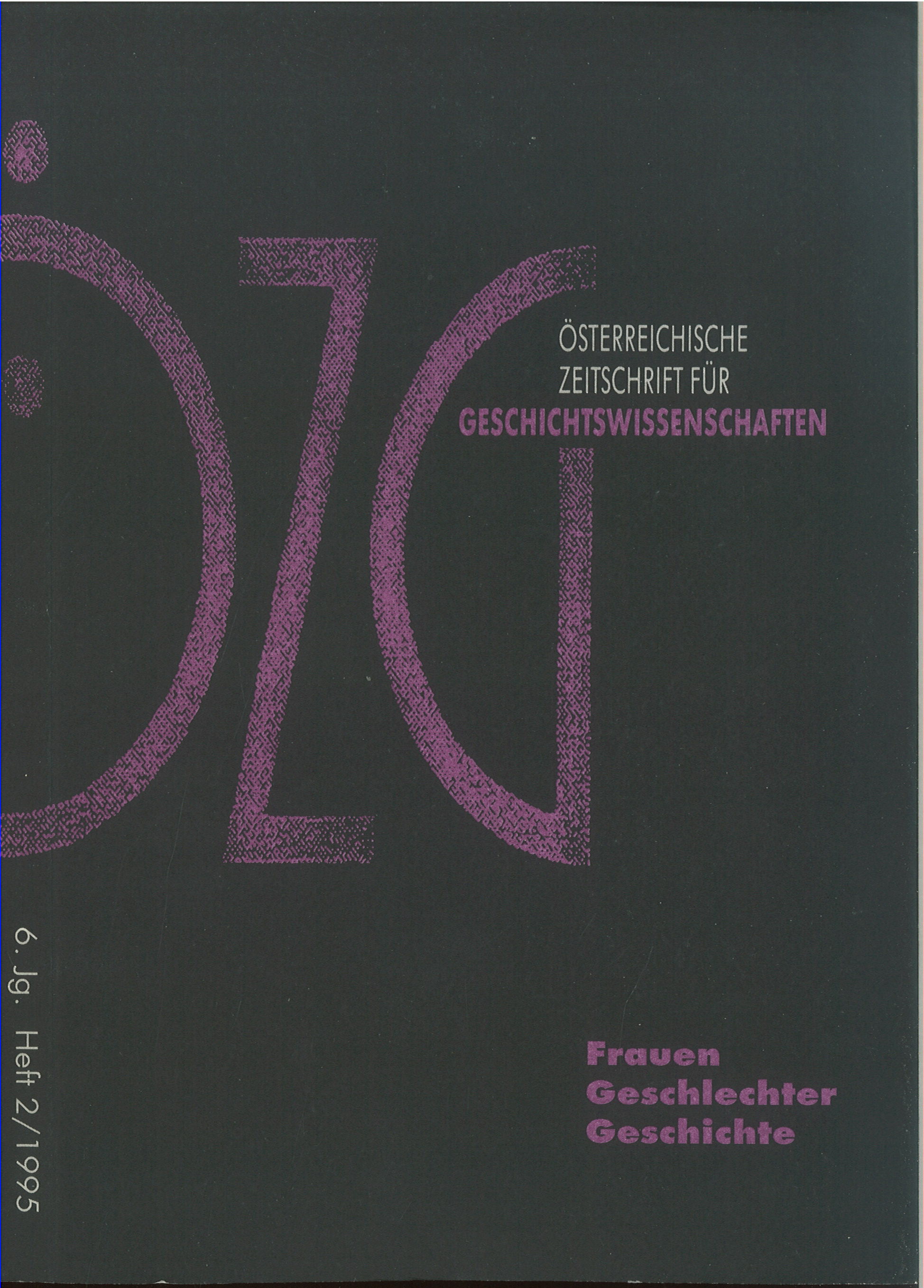Für eine disziplinäre Matrix feministisch perspektivierter Geschichtswissenschaft
DOI:
https://doi.org/10.25365/oezg-1995-6-2-5Abstract
In discussing systematically essentials and rules of historical knowledge from a feminist viewpoint, Schmidt refers to a metatheoretical model, conceptualized by the German historian Jörn Rüsen. lt consists of five dependent elements and modes: human interests in the past, key ideas of and perspectives on the past, methods of research, forms of presentations, and the functions of historical knowledge in orientating human beings in time. Two of these dimensions are parts of the daily practices of life; the other three are parts of history as a professional discipline. In this matrix the needs of orientation in daily life and the needs of validity in a professional discipline indispensably depend on factors of historical awareness, each requiring the other in order to exist. This is the link to rethink a concept of gender history, which insists on feminist involvement as a constitutive source of historical scholarship. The feminist viewpoint, i. e. the critics of patriarchy and efforts to change it, well-ordered by methodological standards of historical sciences, drives on the expansion and extension of assumptions, questions, norms, processes and contents of historical knowledge and research.


